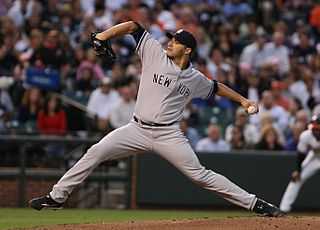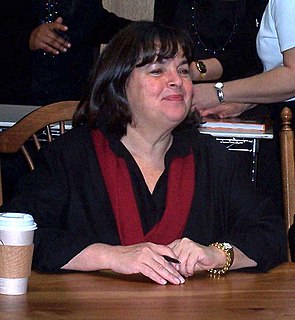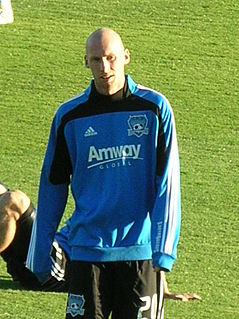A Quote by Evelyn Waugh
Novel-writing is a highly skilled and laborious trade. One does not just sit behind a screen jotting down other people's conversation. One has for one's raw material every single thing one has ever seen or heard or felt, and one has to go over that vast, smoldering rubbish-heap of experience, half stifled by fumes and dust, scraping and delving until one finds a few discarded valuables. Then one has to assemble these tarnished and dented fragments, polish them, set them in order, and try to make a coherent and significant arrangement of them.
Quote Topics
Arrangement
Assemble
Behind
Coherent
Conversation
Delving
Discarded
Does
Down
Dust
Ever
Every
Every Single Thing
Experience
Felt
Few
Finds
Fragments
Go
Half
Heap
Heard
Highly
Just
Laborious
Make
Material
Novel
Order
Other
Over
People
Polish
Raw
Raw Material
Rubbish
Scraping
Screen
Seen
Set
Significant
Single
Single Thing
Sit
Skilled
Tarnished
Them
Then
Thing
Trade
Try
Until
Vast
Writing
Related Quotes
There are some communities that feel you shouldn't give them the publicity, because it's just going to make people curious. There are communities who feel we need to fight them tooth and nail. What we have seen, though, is that ignoring them does not make them go away. If we sit back and let them have free reign, we lose members of our community.
Nothing is wrong with you. You're not different. Everybody feels as bad as you do: this is just what writing a novel feels like. To write a novel is to come in contact with raw, primal feelings, hopes and longings and psychic wounds, and try to make a big public word-sculpture out of them, and that is a crazy hard thing to do.
I try to sit down at night before they go to bed and read the Bible with them and do little devotionals and pray with them. I think if you instill it in them when they are young, they'll remember when they grow up. I raise them in church. When the doors are open, I want to be there. My kids love to go. So does my wife.
There are more stars than there are people. Billions, Alan had said, and millions of them might have planets just as good as ours. Ever since I can remember, I’ve felt too big. But now I felt small. Too small. Too small to count. Every star is massive, but there are so many of them. How could anyone care about one star when there were so many spare? And what if stars were small? What if all the stars were just pixels? And earth was less than a pixel? What does that make us? And what does that make me? Not even dust. I felt tiny. For the first time in my life I felt too small.
The Armful For every parcel I stoop down to seize I lose some other off my arms and knees, And the whole pile is slipping, bottles, buns, Extremes too hard to comprehend at. once Yet nothing I should care to leave behind. With all I have to hold with hand and mind And heart, if need be, I will do my best. To keep their building balanced at my breast. I crouch down to prevent them as they fall; Then sit down in the middle of them all. I had to drop the armful in the road And try to stack them in a better load.
I’ve never seen an exploding helicopter. I’ve never seen anybody go and blow somebody’s head off. So why should I make films about them? But I have seen people destroy themselves in the smallest way, I’ve seen people withdraw, I’ve seen people hide behind political ideas, behind dope, behind the sexual revolution, behind fascism, behind hypocrisy, and I’ve myself done all these things. So I can understand them. What we are saying is so gentle. It’s gentleness. We have problems, terrible problems, but our problems are human problems.
You know that in order to copyright material somebody has to write it down for you. Any piece of recorded material has to be scored in order for it to be copyrighted. I've seen the scores of my things and they don't resemble the music in any way. If you give them to somebody who has never heard the music and say, "What does this sound like to you?" they'll play you something that has no relationship with the music it derives from. Notation simply isn't adequate.
People are curious. A few people are. ... They will put things together, knowing all along that they may be mistaken. You see them going around with notebooks, scraping the dirt off gravestones, reading microfilm, just in the hope of seeing this trickle in time, making a connection, rescuing one thing from the rubbish.
I definitely isolate, but I also always have people in front of me, and I have to be OK with that. I'm in a business where, on the set, you're around two hundred people every day, and if you're high on the call sheet, you sort of set the tone for the set. And you want people to feel appreciated, and you want to ask them how their kids are. You want to talk to people and invest in them and let them know that they're appreciated and heard. But then I do like to just kind of withdraw.
It felt as if we'd been to war together. Deep in a jungle, alone, I had relied on them, these strangers. They'd held me up in ways only people could. When it was over, an ending never felt like an ending, only an exhausted draw, we went our separate ways. Be we were bonded forever by the history of it, the simple fact they'd seen the raw side of me and me of them, a side no one, not even closest friends or family had ever seen before, or probably ever would.
A few days ago Tan Casipo said to me, 'Some people come here with so much dust in their eyes it's unbearable to talk to them.' What does that say about the monkhood? He can't tolerate people with 'dust in their eyes.' All that these monks have developed here is a safe little self-centred world which they call holy because villagers bow down to them. Living in a forest and wearing a robe doesn't make you better than anybody else.
My standards are higher than they used to be, I think. They don't necessarily have to make sense, but I certainly work on them a lot harder now -- partly because I do them on the computer, and I print them out and fix them, and print them and fix them over and over again, whereas in the early days I used to just scratch down a few things on a piece of paper.



































